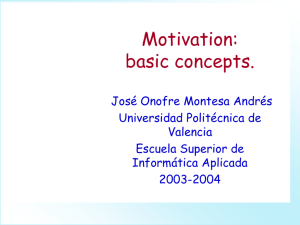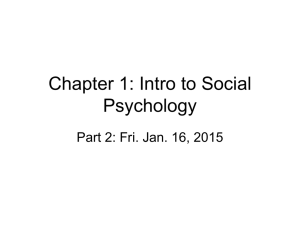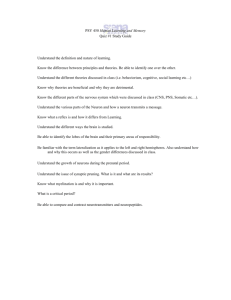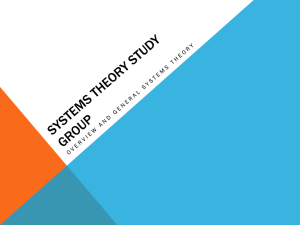Buad 331 Principles of Management Fall Term 2003
advertisement
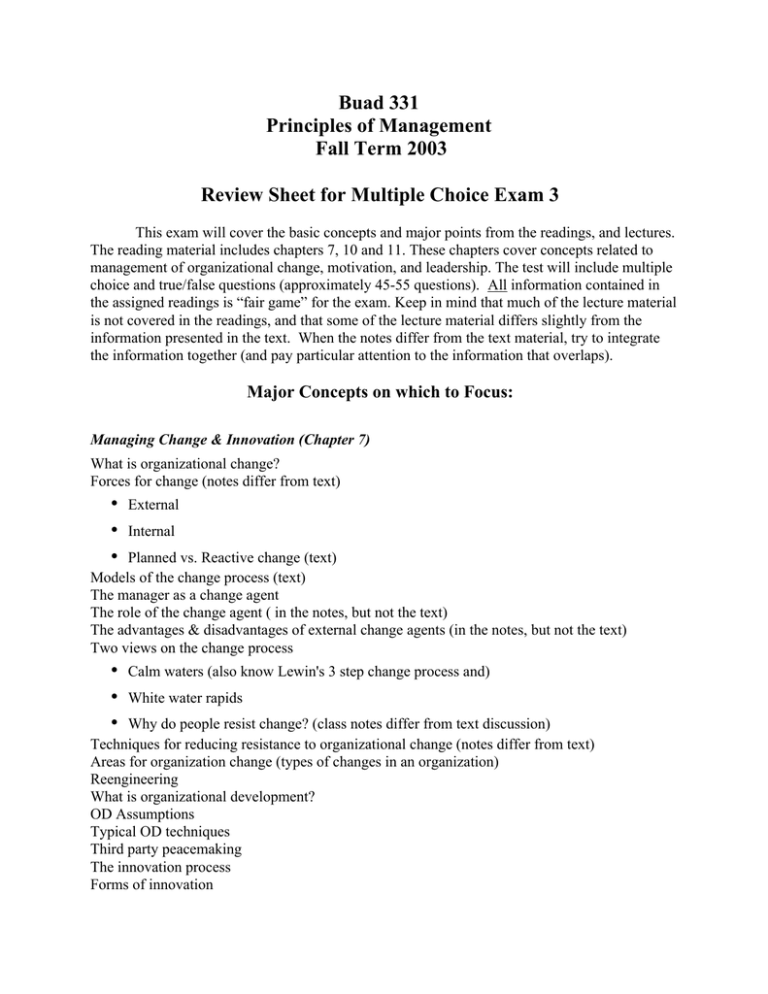
Buad 331 Principles of Management Fall Term 2003 Review Sheet for Multiple Choice Exam 3 This exam will cover the basic concepts and major points from the readings, and lectures. The reading material includes chapters 7, 10 and 11. These chapters cover concepts related to management of organizational change, motivation, and leadership. The test will include multiple choice and true/false questions (approximately 45-55 questions). All information contained in the assigned readings is “fair game” for the exam. Keep in mind that much of the lecture material is not covered in the readings, and that some of the lecture material differs slightly from the information presented in the text. When the notes differ from the text material, try to integrate the information together (and pay particular attention to the information that overlaps). Major Concepts on which to Focus: Managing Change & Innovation (Chapter 7) What is organizational change? Forces for change (notes differ from text) w External w Internal w Planned vs. Reactive change (text) Models of the change process (text) The manager as a change agent The role of the change agent ( in the notes, but not the text) The advantages & disadvantages of external change agents (in the notes, but not the text) Two views on the change process w Calm waters (also know Lewin's 3 step change process and) w White water rapids w Why do people resist change? (class notes differ from text discussion) Techniques for reducing resistance to organizational change (notes differ from text) Areas for organization change (types of changes in an organization) Reengineering What is organizational development? OD Assumptions Typical OD techniques Third party peacemaking The innovation process Forms of innovation The failure to innovate Promoting innovation in organizations Motivation (Chapter 10) Motivation and characteristics of needs (know both definitions of motivation) Early theories of motivation (Needs theories) w Maslow w Herzberg's Motivation-Hygiene theory w McClelland 3 needs theory (Learned Needs; also known a Manifest needs) Process theories of motivation w Equity theory w Goal setting w Expectancy theory (including Porter-Lawler extension) w Reinforcement perspectives on motivation (text only) w Kinds of reinforcement (Positive, Avoidance, Punishment, Extinction) w Providing reinforcement in organizations (schedules of reinforcement) w Empowerment and participation Skip: New Forms of Working Arrangements Using reward systems to motivate performance Leadership (Chapter 11) Trait theories of leadership (Great Man theory) Behavioral theories w Ohio State studies (initiating structure & consideration) w University of Michigan studies (employee-oriented & production-oriented) w The Managerial Grid Contingency theories of leadership w Path-goal theory w Hersey & Blanchard's Situational theory of leadership (Life cycle theory) w From the text, you should study (except where note by "skip"): w Each theory of leadership discussed in the lecture w The nature of leadership (pay particular attention to "power & leadership" w LPC Theory w Skip: the Vroom-Yetton Jago model (Vroom Decision Tree) w LMX model of leadership w Charismatic leadership w Transformational leadership w Political behavior in organizations (especially "common political behaviors) Review Sheet for Essay Exam 3 This exam will cover the basic concepts and major points from the readings, and lectures. The reading material includes chapters 7, 10, and 11. These chapters cover concepts related to management of innovation and organizational change, motivation, and leadership respectively. The test will include 2 -3 questions from each chapter. You will be required to answer 4 questions (one question from each chapter, and the remaining question from any area). Each response will be worth 25 points. In order to do well on this exam, you must write clear, comprehensive responses that fully address each facet of the question. Vague responses, or lists, will work against you. Before writing your response, take time to understand the question. Try to recall all the issues and major points discussed in class or the text that pertain to the question. Create an outline (in your head or on scratch paper). After you have organized your response, then write it down. *** If you plan to take this exam, please notify me in advance to prepare this test for you. Major Concepts on which to Focus: Managing Change & Innovation (Chapter 7) The Nature of organizational change Forces for change w External w Internal Planned vs. Reactive change Two views on the change process w Calm waters w White water rapids Lewin's 3 step change process (also includes force field analysis from the text) Why do people resist change? (class notes differ from text discussion) Techniques for reducing resistance to organizational change What is the role of the change agent? ( in the notes but not the text) The advantages & disadvantages of external change agents (in the note but not the text) Organizational development (and its assumptions) Making changes in the organization (types of changes in an organization) The innovation process Promoting innovation in organizations Motivation (Chapter 10) Early theories of motivation (Needs theories) w Maslow w Herzberg's Motivation-Hygiene theory w McClelland 3 needs theory (Learned Needs) Process Theories w Equity theory w Expectancy theory (know the full model, the major concepts describing the linkages & the Porter-Lawler extension) w Goal setting w Reinforcement perspectives (text only) -- know types of reinforcement and schedules of reinforcement Using reward systems to motivate performance Leadership (Chapter 11) Trait theories of leadership Behavioral theories (Be able to compare and contrast the following approaches) w Ohio State studies (initiating structure & consideration) w University of Michigan studies (employee-oriented & production-oriented) w The Managerial Grid Contingency theories of leadership w Fiedler's LPC theory (in the text) w Path-goal theory w Hersey & Blanchard's Life cycle theory of leadership Charismatic leadership Transformational leadership Be able to compare and contrast all these theories
